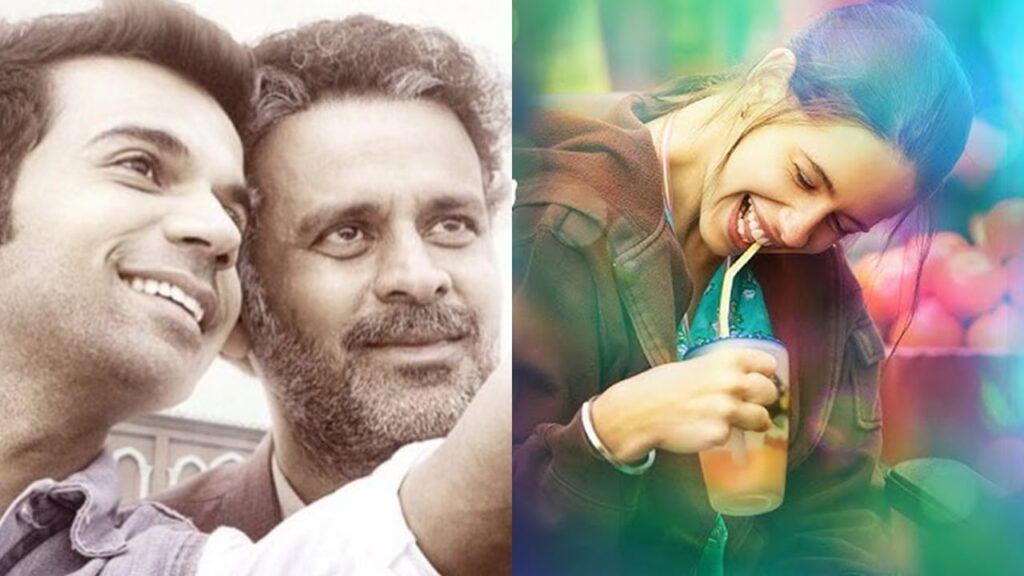<div>
<p>After 77 years of independence, we are witnessing numerous changes in our society, one of the most significant being that the majority of people can now live their lives according to their wishes. In the past, we were taught that living for others, making compromises, and embracing struggles were the keys to a happy life. However, as people become more educated and self-reliant, their mindset is evolving towards liberation.</p>
<p>Over these 77 years, the meaning of relationships has also transformed. The concept of live-in relationships has emerged between marriage and commitment, sparking extensive debates. Just as society questions live-in relationships, there exists considerable opposition towards same-sex relationships, with conservative views still dominating the discourse. Neither society's gatekeepers nor the films addressing these issues have been embraced openly.</p>
<h2>Films Addressing LGBTQ Themes</h2>
<p>Bollywood has created films on various subjects, including LGBTQ topics. One of the first significant films to tackle this theme was “FIRE,” released 28 years ago in 1996, featuring Nandita Das and Shabana Azmi. The film sparked considerable controversy due to its portrayal of same-sex relationships and continues to be a talking point even today. Although many films on the topic, like “Girlfriend,” “Margarita with a Straw,” “Aligarh” with Manoj Bajpayee, “Kapoor & Sons,” and “Ek Ladki Ko Dekha Toh Aisa Laga,” were not box office hits, they nevertheless ignited much discussion within society.</p>
<h2>Hope Through Cinema</h2>
<p>Films addressing LGBTQ issues might be distinct, but they articulate the experiences of individuals who cannot openly share their pain or difficulties. The agony of concealing one's truth resonates deeply, and these films can serve as flickers of hope for those grappling with societal judgments about their identities. By bringing these emotions to the forefront, such films illuminate the struggles faced by the LGBTQ community, establishing a connection to viewers who might feel similarly isolated.</p>
<h2>Audience Reactions</h2>
<p>Every individual has a unique perspective, much like the analogy of a half-full glass of water. While some perceive it as half empty, others regard it as half full. Similarly, societal reactions to relationships perceived as wrong by some are viewed as right by others. Often, people hesitate to speak openly about issues like homosexuality, reflecting in how audiences respond to films on this subject. Thus, despite being recognized by awards and accolades, these films often struggle to make their mark at the box office.</p>
<h2>Gradual Change</h2>
<p>It is said that films mirror society, showcasing contemporary realities. For a long time, transgender individuals and the LGBTQ community were primarily portrayed as comic relief in Indian cinema. However, there are signs of gradual evolution within this craft. Streaming platforms are striving to normalize the representation of LGBTQ themes. Although creating films addressing homosexuality may present challenges for the industry, many Bollywood celebrities are now candidly discussing these matters.</p>
<p>Critic and expert Aarti Saxena remarked that there exists a stark contrast between public perceptions of LGBTQ films and Bollywood's approach to the subject. In the past, these relationships were regarded as 'rich people's whims' or seen as 'deviations from societal norms,' with Bollywood being accused of perpetuating these distortions. This perception possibly arose from film industry figures being the first to open up about their sexualities, leading to accusations of corrupting societal values.</p>
<h2>Community Perspectives</h2>
<p>In discussing this topic, we also reached out to a model from the LGBTQ community who chose to remain unnamed. They emphasized the importance of considering how individuals within the LGBTQ community are treated by society. Often, they face discrimination when searching for housing. They have to present themselves as 'brothers' to secure a place to live, indicating a pervasive environment of bias and misunderstanding.</p>
<p>This model further noted that very few people treat individuals in the LGBTQ community without prejudice, even in metropolitan areas like Mumbai. There are misconceptions that people may forcefully engage in relationships with others of the same gender, leading to stigmas surrounding young individuals identifying as homosexual. Moreover, the absence of legal safeguards means that in the event of a partner's death, the surviving partner may be left impoverished due to a lack of inheritance rights.</p>
<h2>Looking Ahead</h2>
<p>In conclusion, while progress has been made, changing society's perspective entirely will take time. It is clear that many individuals are still uncomfortable with the notion of seeing two males or two females in romantic roles on screen. However, treating LGBTQ individuals as human beings is a significant step forward. The societal shift towards acceptance may be slow, but the ongoing dialogues fostered by films and discussions will undoubtedly pave the way for a more inclusive future.</p>
</div>
Kavita Mishra
Designation: Entertainment Editor Education: B.A. in Film Studies, University of Mumbai Bio: Kavita Mishra brings her love for cinema and pop culture to the forefront as the Entertainment Editor at India Rag. She has over 10 years of experience covering the entertainment industry, including film reviews, celebrity interviews, and event coverage. Kavita’s engaging writing style and industry insights make her content a favorite among readers. Email: [email protected]